Reblogged from my Integral Permaculture site. Be sure to see the comment at the end related to the local opportunity of a Permaculture course at Inspiration Farm in August (which will include, btw, admission into the Whatcom Skillshare Faire/Northwest Permaculture Convergence).
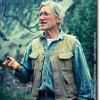 David Holmgren, co-originator of Permaculture, and systems analyst Nicole Foss have begun their summer tour of Australia, which is being billed as “Strategies for a Changing Economy: Survive and Thrive” (click here for dates and here for further details about the tour). Foss will outline the links between the converging crises that include economic contraction, peak energy and geopolitical stress. She will also share her thoughts on the implications for how it will impact everyday lives and will offer practical solutions. David Holmgren will outline practical strategies drawn from 30 years of permaculture to help households and communities survive, thrive and contribute to a better world. Holmgren will also present an update of his well-known and popular “Retrofitting the Suburbs for Sustainability” presentation:
David Holmgren, co-originator of Permaculture, and systems analyst Nicole Foss have begun their summer tour of Australia, which is being billed as “Strategies for a Changing Economy: Survive and Thrive” (click here for dates and here for further details about the tour). Foss will outline the links between the converging crises that include economic contraction, peak energy and geopolitical stress. She will also share her thoughts on the implications for how it will impact everyday lives and will offer practical solutions. David Holmgren will outline practical strategies drawn from 30 years of permaculture to help households and communities survive, thrive and contribute to a better world. Holmgren will also present an update of his well-known and popular “Retrofitting the Suburbs for Sustainability” presentation:
Returning to Aussie St, David shows how the permaculture makeover and behaviour change is progressing through the Second Great Depression. Aussie St is not only surviving but thriving through the “dumpers” that property bubble collapse, climate chaos and geopolitical energy shocks have unleashed on the lucky country. An endearing, amusing and gutsy story of hope for in-situ adaptation by the majority of Australians living in our towns and suburbs.
Reading about the announcement of this Foss and Holmgreen tour, I was reminded of an observation I’ve had that when people really get educated about this triple threat of climate chaos, energy depletion, and economic instability; and when they seriously consider the options for how to respond; that permaculture very often comes up as the number 1 recommended approach.
Let’s review just a few.
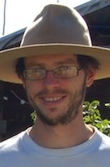 Energy Bulletin – Adam Fenderson and Bart Anderson
Energy Bulletin – Adam Fenderson and Bart Anderson
Resilience.org‘s predecessor was the venerable Energy Bulletin, co-founded in 2004 by Adam Fenderson as a clearinghouse for information on peak-oil. Adam clearly latched on to Permaculture early on. He did some excellent interviews with David Holmgren that are still very worthwhile to listen to (check out transcript here). He then changed his name to “Adam Grubb” and resigned to pursue Permaculture in more depth. He became co-founder of the Permablitz network and director of Very Edible Gardens. Longtime editor of Energy Bulletin/Resilience, Bart Anderson is also a proponent of permaculture.
Richard Heinberg is one of the most longest standing and well respected “peak oil educators.” When you read his work, note how often he recommends permaculture and Transition Towns as a response. Heinberg also toured with Holmgren in 2006, and practices permaculture at his home (as demonstrated in this Peak Moment TV episode.)
Already a well known permaculturist, Bates authored one of the early practical response books to Peak Oil: The Post Petroleum Survival Guide and Cookbook.
 Rob Hopkins and Transition Towns
Rob Hopkins and Transition Towns
Hopkins was also already a permaculture educator when he and his students experienced what he calls their “End of Suburbia moment” in 2004. The Transition movement was born as a permaculture “energy descent” design plan – social permaculture in action. As Hopkins said in an interview, “It [Transition] is my attempt at lifting permaculture principles onto a whole other level of effectiveness and relevance. We try and integrate permaculture principles into the whole process, and they certainly underpin the work that I do. I recommend Holmgren’s book to anyone who is interested in all this.” In his review of Holmgren’s book, Hopkins wrote, “This book is the clearest elucidation of what this new paradigm might look like since his permaculture co-originator Bill Mollison’s seminal ‘Permaculture, a Designers Manual’ was published in 1988. It is no exaggeration to call this the most important book published in the last 15 years.”
 Chris Martenson
Chris Martenson
Martenson developed his highly regarded “Crash Course” as a response to energy depletion and economic instability. Martenson found his way to “Financial Permaculture” and more recently Permaculture has had a more pronounced presence on his ‘Peak Prosperity” website – for example, see his post on Permaculture and the 8 Forms of Capital with Ethan Roland, and the excellent discussion with Toby Hemenway: Explaining Permaculture .
Posting as “Stoneleigh” on The Oil Drum and then The Automatic Earth, Nicole Foss has a well-earned reputation for deep analysis, penetrating wisdom, and a unique ability to connect the dots using her complexity and systems thinking skills. In the last few years she too seems to be increasingly mentioning permaculture, and participating with permaculture teachers and courses, culminating in the current tour with David Holmgren.
I am increasingly involved with permaculture (teaching it in Belize this February), as it represents one of the most important paths towards building workable life-support systems in our era of limits to growth. We are rapidly running out of options as we deplete our natural capital worldwide. While we badly need to make some informed hard choices, we collectively do not, as our consumptive system has tremendous inertia. As we reach the limits that lie in our not too distant future, permaculture can be of tremendous use, for those who implement it, in mitigating the impacts and facilitating rebuilding from the bottom-up.
- Nicole Foss
We could mention many others, but the point is made. The next question is – what is it about Permaculture that makes it so attractive as a response to the challenges we’re faced with today?
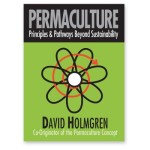 First, it can be said that Permaculture was designed specifically for declining availability and use of fossil fuels. In the Preface to his 2002 book, Permaculture: Principles and Pathways Beyond Sustainability, David Holmgren wrote very clearly that permaculture, from the very beginning was founded on fundamental assumptions about the environmental crisis, the ongoing impacts of global industrial society, the limitations due to the energy laws that govern the material universe, the role of fossil fuels in enabling the industrial era, and the inevitable depletion of fossil fuels – likely sooner rather than later.
First, it can be said that Permaculture was designed specifically for declining availability and use of fossil fuels. In the Preface to his 2002 book, Permaculture: Principles and Pathways Beyond Sustainability, David Holmgren wrote very clearly that permaculture, from the very beginning was founded on fundamental assumptions about the environmental crisis, the ongoing impacts of global industrial society, the limitations due to the energy laws that govern the material universe, the role of fossil fuels in enabling the industrial era, and the inevitable depletion of fossil fuels – likely sooner rather than later.
Howard T. Odum
Holmgren also acknowledges “a clear and special debt to the published work of American ecologist Howard Odum.” Odum was the first listed reference in the first permaculture book (Permaculture One), and is referenced over and over in the 2002 book, which is dedicated to the memory of Odum, who passed Sept. 11, 2002. This is significant, because Howard T. Odum spent much of his life work on the topic of energy and the inevitable decline of fossil fuel availability. In 1994, Holmgren wrote:
Odum was one of the leading ecologists who developed a systems approach to the study of human/environment interactions. He uses energy as a currency to compare and quantify the whole spectrum of natural and man-made elements and processes.
In Holmgren’s 2002 Permaculture book, he states that “Permaculture is a creative design response to a world of declining energy and resource availability.”
Other features Holmgren names offer additional reasons permaculture is being recognized frequently as appropriate response to the current state of affairs. Permaculture:
- gives priority to using existing wealth to rebuilding natural capital…
- emphasizes bottom-up “redesign” processes…
- more fundamentally was predicated on the likelihood of some degree of collapse and breakdown…
- sees pre-industrial sustainable societies as providing models that reflect the more general system design principles observable in nature and relevant to post-industrial systems.
Here’s an interview with Holmgren on Permaculture and Peak Oil, recorded circa 2007, I think. He covers many of the most important features of his thinking in relation to energy descent.
Hopefully it is becoming obvious that permaculture is much more than a quirky form of organic gardening. It is when people come to this realization that they start to see the real possibilities and potentialities.
Now we come to that pesky problem of trying to define “permaculture.” Holmgren, again:
“…I see permaculture as the use of systems thinking and design principles that provide the organizing framework for implementing [the vision outlined in Permaculture One of] …’Consciously designed landscapes which mimic the patterns and relationships found in nature, while yielding an abundance of food, fiber and energy for provision of local needs.’ People, their buildings and the ways they organize themselves are central to permaculture. Thus the permaculture vision of permanent (sustainable) agriculture has evolved to one of permanent (sustainable) culture…It draws together the diverse ideas, skills and ways of living which need to be rediscovered and developed in order to empower us to move from being dependent consumers to becoming responsible and productive citizens.”
- Permaculture: Principles & Pathways Beyond Sustainability, p. xix [to get a concise definition, I've rearranged the order of sentences, but it all comes from page xix of the Introduction]
In this more recent video, David Holmgren talks about permaculture as a way to change the world:
I envy those in Australia who are able to attend one of the presentations of the Foss and Holmgren ‘Survive and Thrive’ tour. If you live elsewhere in the world, the best way to learn permaculture is to attend a ‘hands-on’ full immersion Permaculture Design Certification course taught by qualified and experienced teachers using the full 72 hour course material from the Permaculture Design manual by the other co-originator, Bill Mollison.
You can check out permacourses.com to find a course being taught this summer near you.
Brian Kerkvliet, steward of Inspiration Farm
I’m hoping to see some of you at the Inspiration Farm PDC course I’ll be a co-instructor at in Northwest Washington state, Aug. 17-29th. Lead instructor Brian Kerkvliet is PRI certified, and Paul Wheaton, of Permies.com, has named Inspiration Farm as the premier Permaculture Farm of the Pacific Northwest. You can learn much more in the Cascadia Forum at Permies.com here.
Comment
© 2026 Created by David MacLeod.
Powered by
![]()
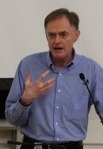


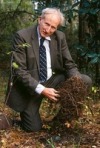
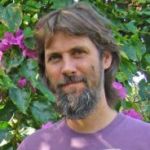
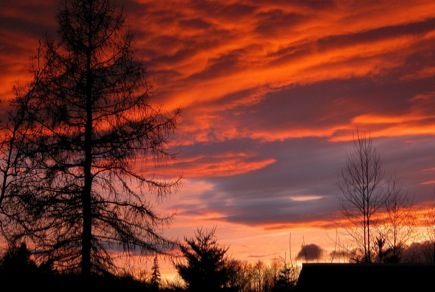
You need to be a member of Transition Whatcom to add comments!
Join Transition Whatcom